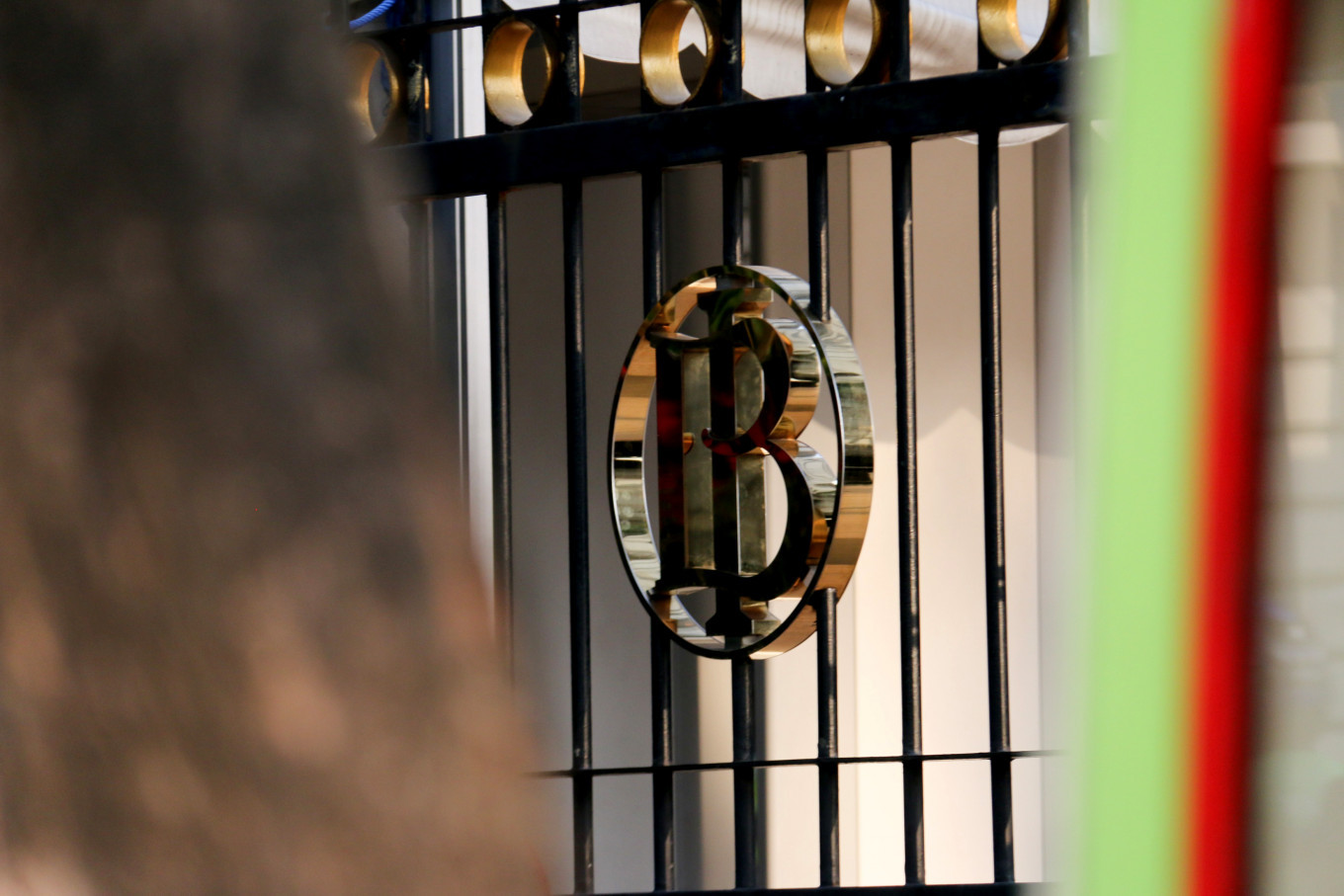Popular Reads
Top Results
Can't find what you're looking for?
View all search resultsPopular Reads
Top Results
Can't find what you're looking for?
View all search resultsBI holds rate at 5% as loan growth slows to three-year low
“Monetary policy will remain accommodative and consistent as inflation and external stability remain in check as well as measures [taken] to maintain domestic economic growth momentum amid the global economic slowdown."
Change text size
Gift Premium Articles
to Anyone
B
ank Indonesia (BI) held the nation's benchmark interest rate steady at 5 percent on Thursday after cutting the policy rate by a total of 100 basis points (bps) in the second half of this year to fuel economic expansion. Loan growth dropped to 6.53 percent in October, further signaling weak economic expansion.
“With improving global and domestic economic conditions, the board of governors meeting on Dec. 18 and 19 decided to keep the seven-day reverse repo rate at 5 percent,” BI Governor Perry Warjiyo said during a press briefing in Jakarta on Thursday following the central bank’s board of governors meeting.
The central bank maintained the deposit facility rate at 4.25 percent and lending facility rate at 5.75 percent.
“Monetary policy will remain accommodative and consistent as inflation and external stability remain in check as well as measures [taken] to maintain domestic economic growth momentum amid the global economic slowdown,” Perry added.
Banks' loan growth touched a more than three-year low of 6.53 percent in October, indicating weak economic expansion in Southeast Asia's largest economy. Indonesia's economic growth reached 5.02 percent in the third quarter of this year, the weakest in more than two years.
To encourage banks to boost loans, BI last month decided to cut the average primary reserve requirement (GWM) – the minimum amount of bank liquidity stored at the central bank – by 50 bps, a move expected to free up banks' liquidity. The policy, which will take effect on Jan 2. 2020, is expected to make conventional banks’ GWM rate go down to 5.5 percent, while Islamic banks’ GWM rate would become 4 percent.










